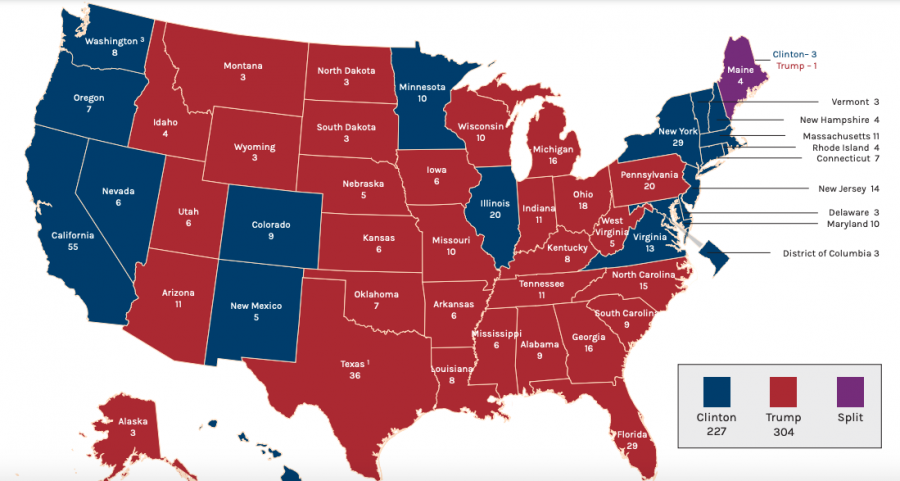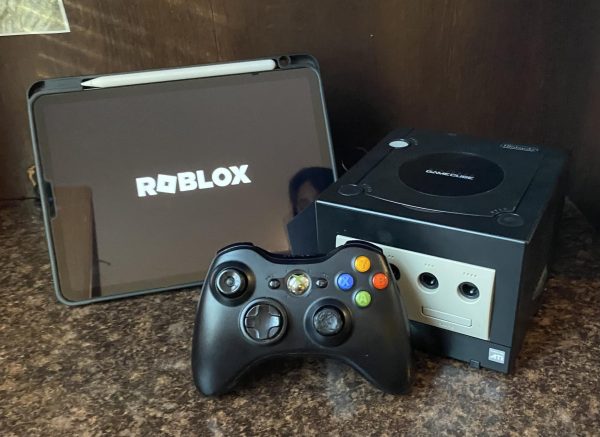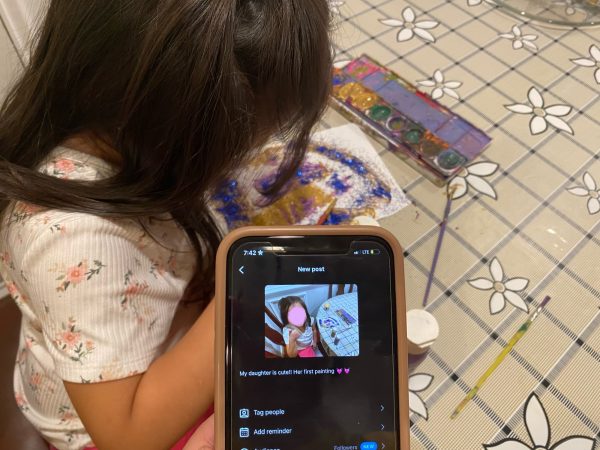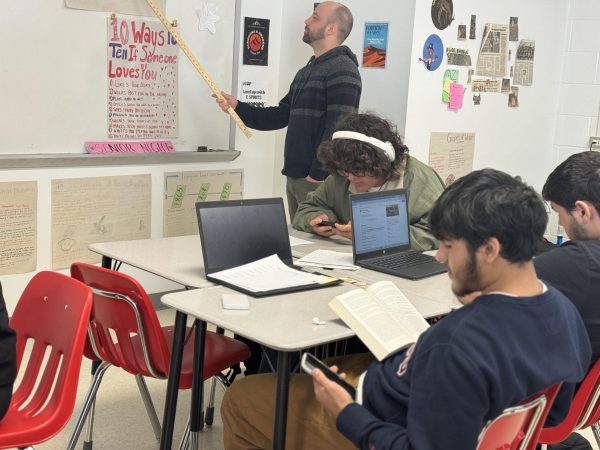Should the Electoral College be abolished?
Although Hillary Clinton (D) won the popular vote in the 2016 presidential election by a margin of almost 2.9 million votes, Donald Trump (R) won the election since he won 77 more electoral votes. Specifically, this was made possible by Trump winning swing states like Michigan, Wisconsin and Pennsylvania.
“I was devastated and felt so unsettled about the future when Trump won,” senior Sophia Baraban said.
The fact that he wasn’t even elected by America but instead by the Electoral College was salt in the wound.
The Electoral College is made up of 538 electors, consisting of each state’s senators and representatives. Two hundred seventy of these electors’ votes are required to win the presidential election.
Usually, the candidate that has won a majority of the popular vote is the victor of the Electoral College.
However, that was not the case in 2000 when George Bush won and 2016 when Donald Trump won.
During an interview in 2017, Clinton said that the abolishment of this system is necessary for maintaining a democracy and that the replacement should be a popular election.
Baraban is one of many individuals that shares this view.
“Our democratic ideals call for the President to be elected by majority vote,” she said. “When voters go to polls, they want to be voting for the President, not the electors. The candidate with the most votes should lead this country.”
Government teacher Meg Anderson, too, believes that the system should be abolished.
“The use of electoral votes places a disproportionate emphasis and weight on more populous swing states while parts of the country are largely ignored,” Anderson said. “A democracy, by definition, is a government by the will of the people. When a candidate wins the presidency of the United States despite losing the popular vote, the will of the people is being ignored.”
According to a survey by NBC News and the Wall Street Journal, 53% of Americans favor the institution of an amendment that requires a direct popular election.
Some, however, follow a more moderate approach, believing that the existing system should simply be revamped.
“While I do think the Electoral College is greatly outdated, I also think moving to a direct popular vote would be difficult to put in place,” government teacher Kellie Burke said.
Instead, Burke favors the proportional plan, which would divide a state’s electoral votes among the candidates based on how the state’s population voted.
“This would make the popular vote more important, and candidates who narrowly lose states can still get electoral votes, reflecting how the people actually voted,” Burke said.
Regardless, reforms to the system have been difficult. All attempts have failed, with the closest passing occuring during the 91st term of Congress between 1969 and 1971.
People who support the Electoral College believe the system ensures that every state, large population or not, plays a major role during candidates’ campaigns.
After winning the presidential election in 2016, Trump praised the Electoral College. Although it was contradictory to his criticisms in years prior, he expressed that the system allows for all states to serve a purpose.
Others also in support of the Electoral College refer to America’s system of government.
“I think it should be kept as it exemplifies America’s representative democracy,” senior Dawud Bundu said. “We vote for those that represent us in the Electoral College.”
The Electoral College will certainly play a significant role in this year’s election as well, but whether it will pick a different winner than the popular vote remains to be seen.

Senior Ryan Lam is a first-year in The A-Blast staff; he is currently the Webmaster and Social Media Manager. He enjoys spending time with family and friends,...











